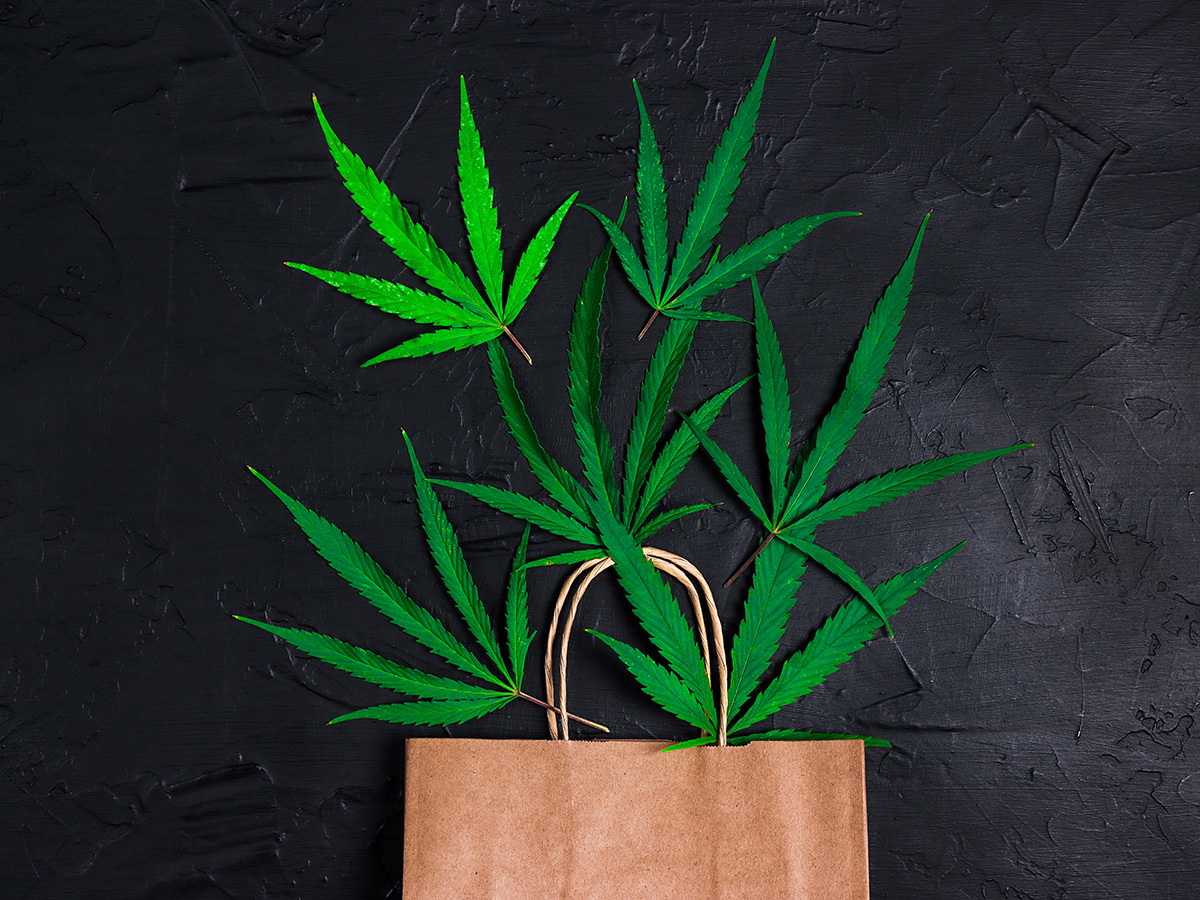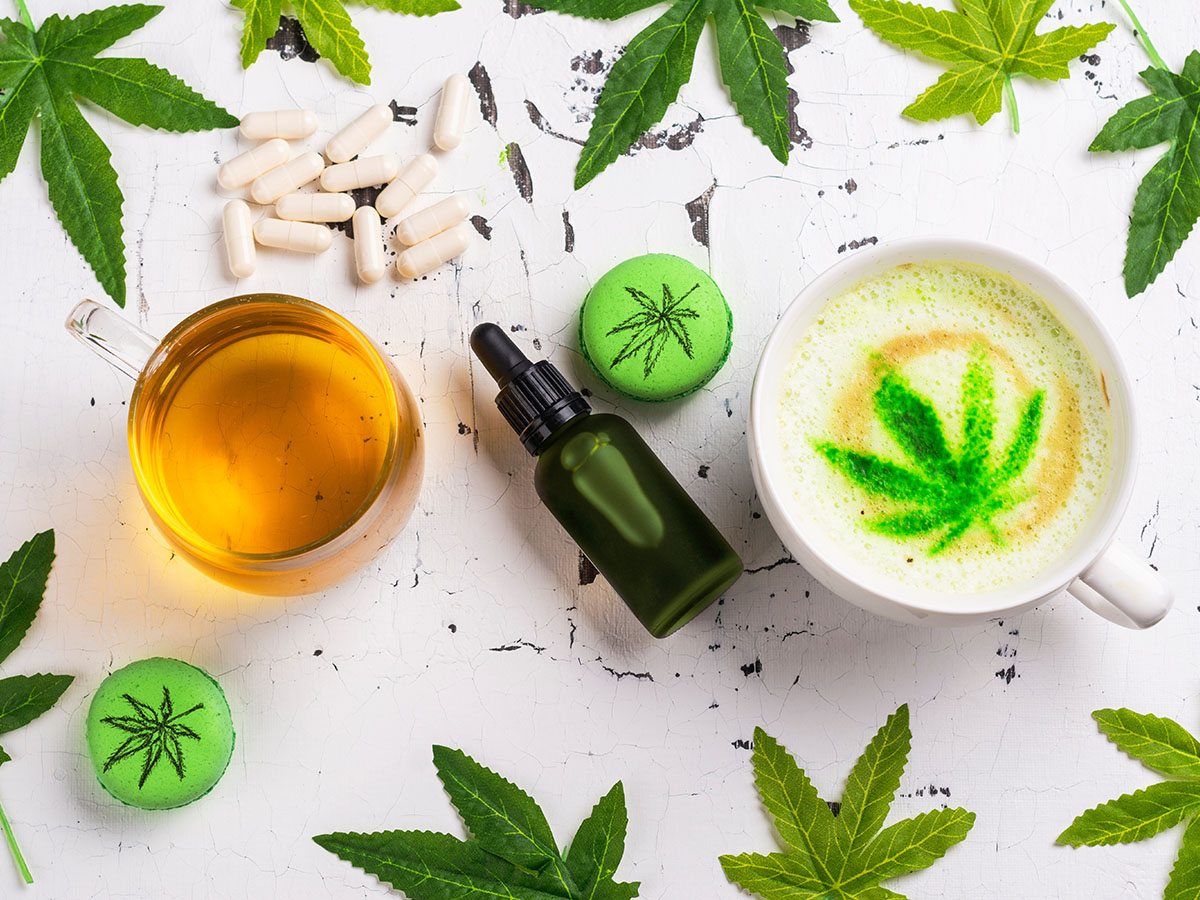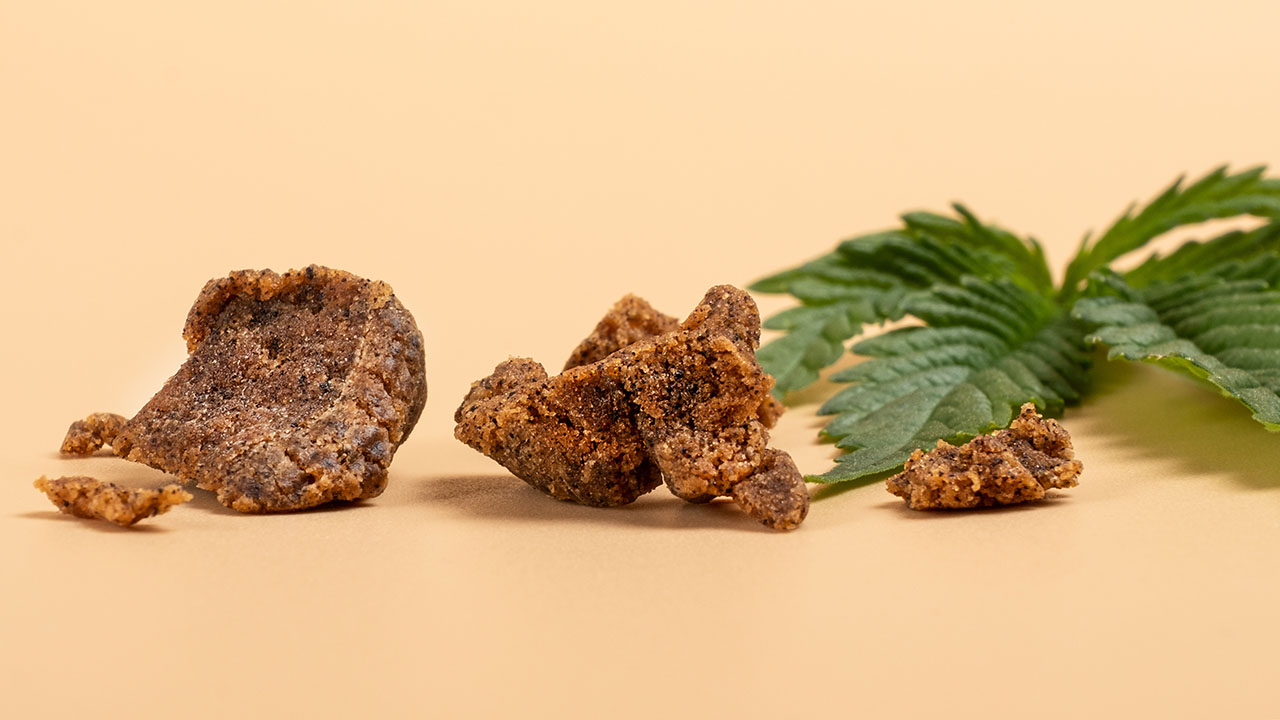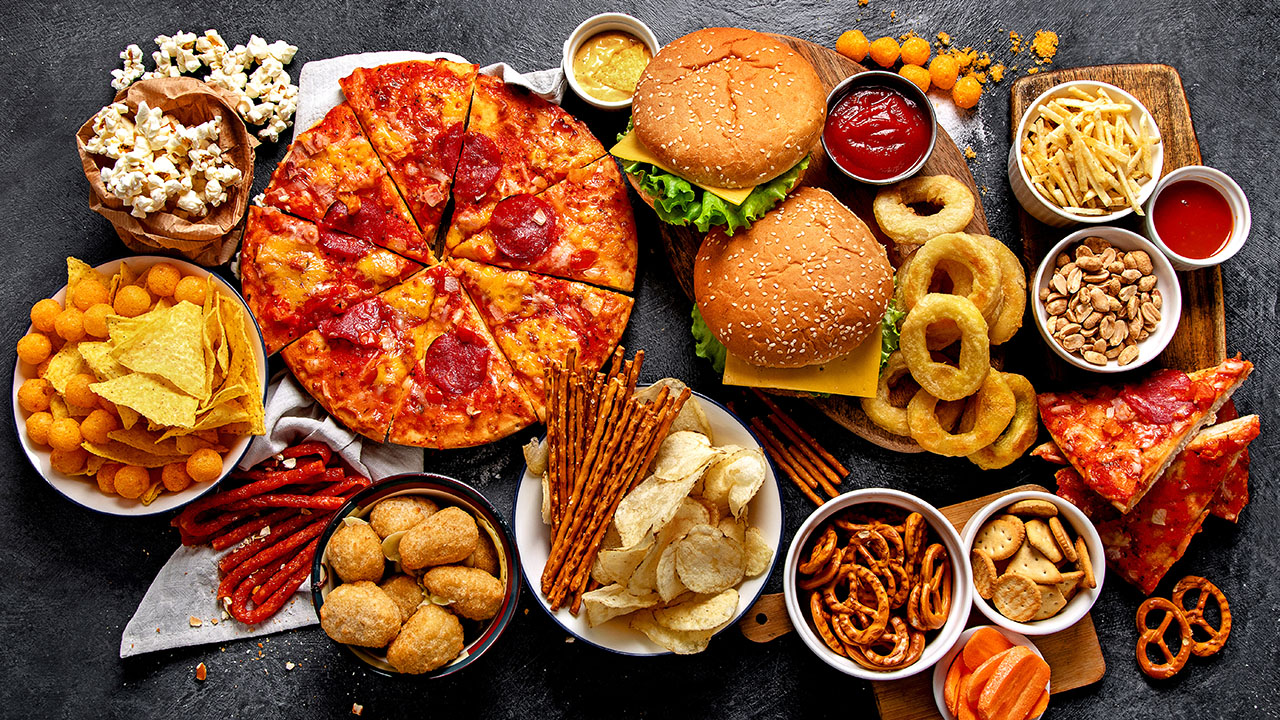
The Munchies: Why Does Cannabis Make You Hungry?
August 26, 2025
Most cannabis consumers have experienced “the munchies”—that undeniable urge to snack after consuming some cannabis flower or edibles. But have you ever wondered why cannabis triggers such intense hunger, even when you’ve already eaten?
The answer lies in the way THC interacts with your body’s endocannabinoid system, stimulating appetite and enhancing your senses. This well-known side effect is actually beneficial for certain medical marijuana patients, but for casual consumers, it’s often just an excuse to indulge in your favorite snacks. In this article, we’ll explore why cannabis makes you hungry and whether there are any benefits to experiencing the munchies.
High Points
- THC is the main driver of the munchies because it binds to CB1 receptors; flips hunger neurons into “on” mode; boosts dopamine; and even heightens smell, making food taste and smell better. CBD doesn’t cause that hunger surge, but it may reduce pain or nausea, which can indirectly help people eat.
- THC’s appetite boosting properties may be therapeutic, helping medical cannabis patients eat when they otherwise couldn’t. For recreational consumers, it’s more about the fun excuse to snack and enjoy food on a whole new level.
- Both smoking and edibles can trigger munchies, but edibles often intensify them because digestion makes the THC effects last longer. Whether you’re smoking a joint or eating an infused gummy, if THC’s involved, the hunger switch can flip on.
What are the Munchies?
“The munchies” refers to the intense hunger that often follows cannabis consumption. Research shows that cannabis can stimulate appetite, and this effect can be considered beneficial for patients receiving medical marijuana treatments.1 For example, it may help those with conditions like HIV/AIDS or when undergoing chemotherapy by encouraging the patient to eat when they might otherwise lose their appetite.2
Studies in animals indicate that THC, the psychoactive cannabinoid in cannabis, influences several bodily systems to promote feelings of hunger, which leads us to that irresistible urge to raid the pantry.3
Why Does Cannabis Make You Hungry?
The connection between cannabis and hunger stems from THC’s interaction with the body’s endocannabinoid system. Specifically, THC binds to the CB1 receptor, which plays a role in regulating appetite. This interaction can make high-calorie foods especially appealing after using cannabis.4
But how exactly does THC trick your brain into thinking you’re hungry?
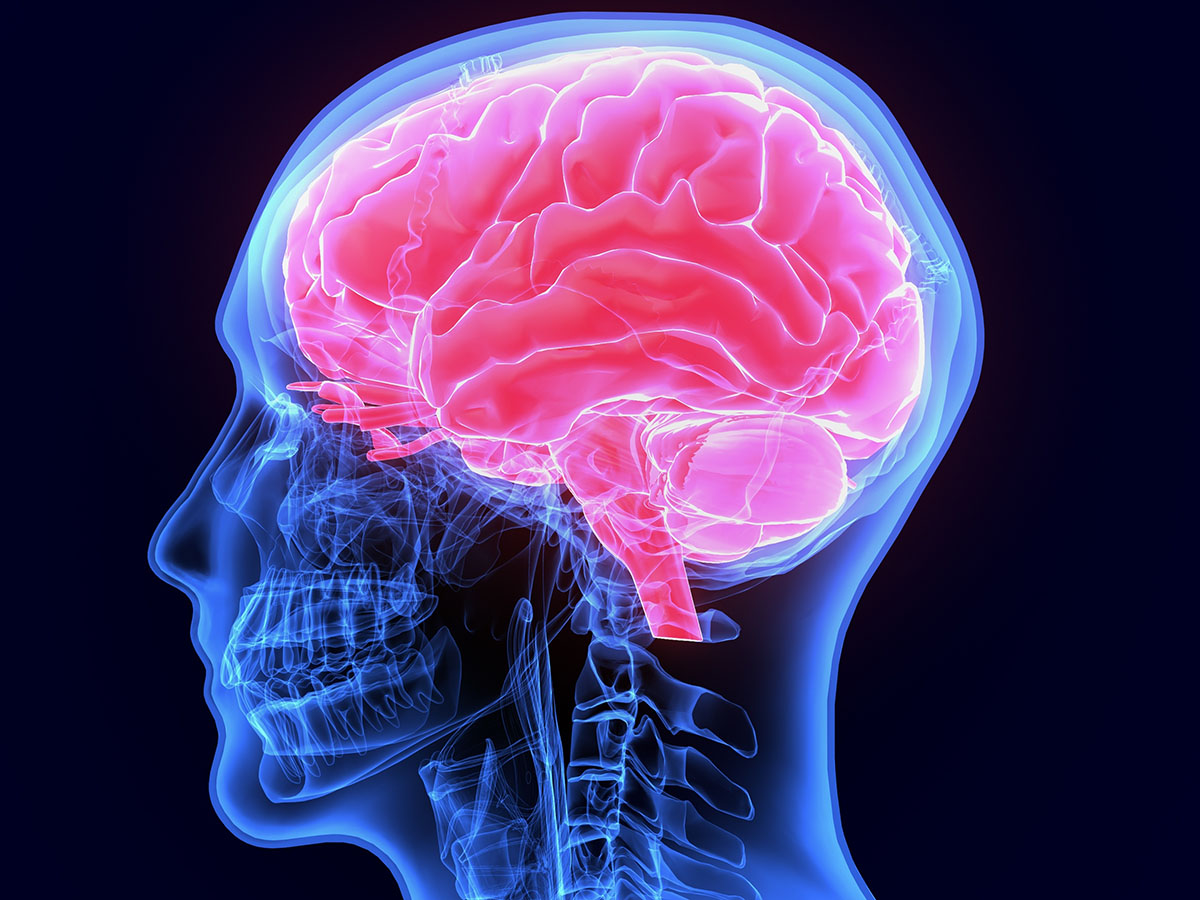
THC & The Brain’s Feeding System
THC activates specific hunger neurons in the brain, essentially flipping the switch that tells your body it’s time to eat—even when you’re not truly hungry. These neurons typically function to signal when you’ve eaten enough, helping regulate your appetite.5
However, when THC enters the picture, it causes these neurons to act in reverse, tricking your brain into believing you still need food.6 This effect increases your appetite, making everything seem more appealing and satisfying. It’s as if cannabis gives your brain permission to indulge, and suddenly you get the green light to start munching. This is one reason why cannabis is often linked to what we call “the munchies.”7
Dopamine Levels Increase
Cannabis not only triggers hunger signals but also boosts dopamine levels in the brain. Dopamine is often referred to as the “feel-good” neurotransmitter because it’s responsible for feelings of pleasure and reward. When you’re high, this increase in dopamine makes eating more enjoyable, enhancing the overall sensory experience.8
The combination of your brain telling you that you’re hungry and the surge of dopamine makes snacking incredibly tempting. This heightened sense of enjoyment turns even the simplest foods into irresistible treats, which is why the munchies are such a well-known side effect of cannabis.9
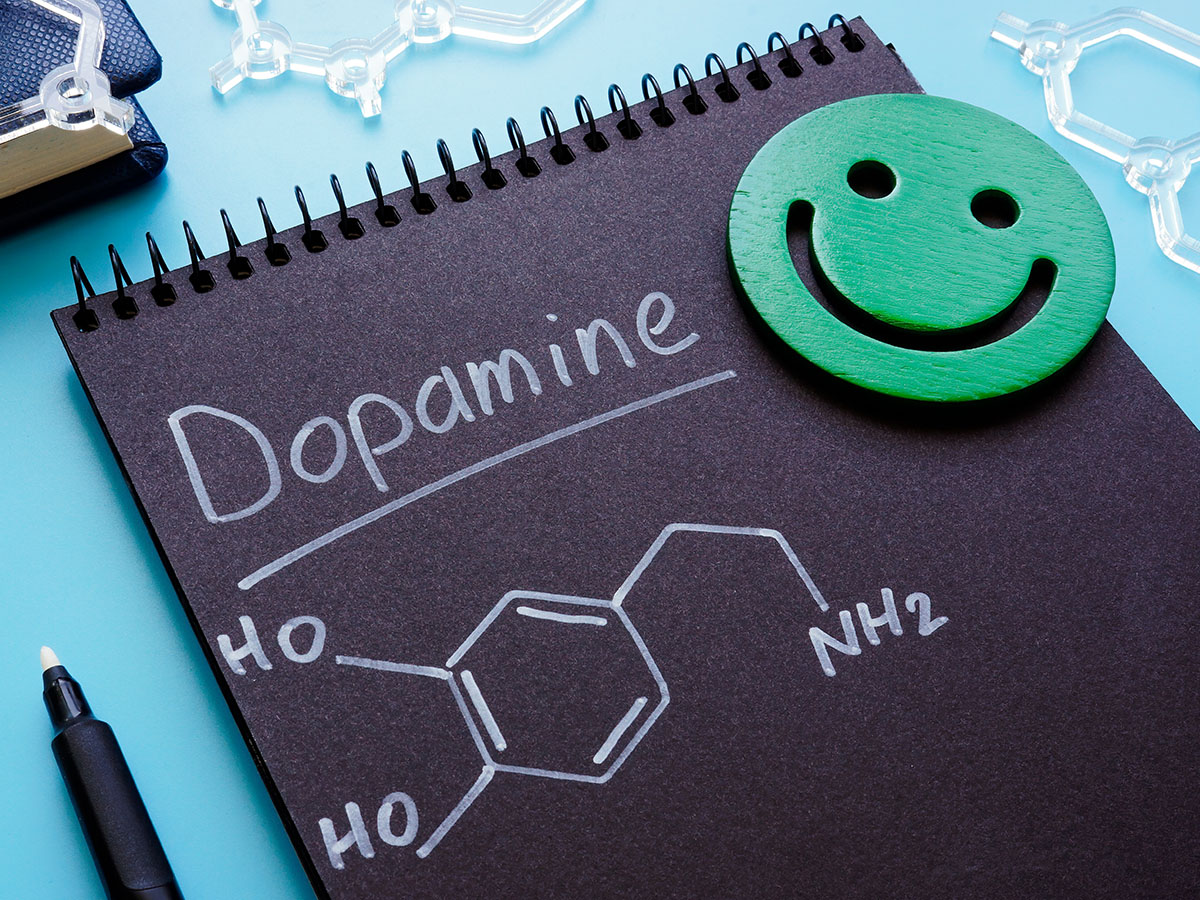
Food Smells Better
Another fascinating effect of THC is how it heightens your sense of smell. When THC interacts with the CB1 receptors in the brain’s olfactory bulb—responsible for processing odors—it makes these receptors more sensitive. In fact, studies on fasted mice show that THC can increase odor detection, which promotes food intake.10 This heightened sense of smell makes food aromas more intense and appealing, making even the simplest snacks seem irresistible.
So, when you experience the munchies after consuming cannabis, it’s not just because you’re hungrier—it’s also because your brain is perceiving food in a much more enticing and tempting way, making you crave it even more.
Does CBD Make You Hungry?
Unlike THC, CBD is much less likely to make you hungry. While CBD also interacts with the endocannabinoid system, it doesn’t stimulate appetite the way THC does. Instead, CBD is thought to reduce pain or nausea, which can indirectly encourage a person to eat but doesn’t trigger the same hunger signals in the brain.11
Some studies suggest CBD helps regulate insulin production and metabolism, making it more supportive of balanced weight management rather than increasing food cravings. So, while THC is known for causing the munchies, CBD has a much more subtle effect on appetite.12
Are There Benefits to “The Munchies”?
As odd as it may seem, the munchies may have real therapeutic benefits, especially for those dealing with conditions that suppress their appetite. Many medical marijuana patients have long relied on THC’s appetite-stimulating effects to manage health conditions like cancer13 and HIV/AIDS.14
In fact, synthetic THC (Dronabinol) is FDA-approved for treating chemotherapy-induced nausea and vomiting, as well as managing appetite loss in patients with wasting syndrome.15 Cannabis has also been used to help people with digestive disorders like ulcerative colitis, where maintaining a healthy appetite can be difficult due to inflammation in the digestive tract.16
(It’s important to note that while there seems to be great potential around cannabis as an antiemetic or to increase or manage appetite, more studies are needed.)
FAQs About the Munchies
If you’re still curious about what causes the munchies or how THC affects your appetite, don’t worry—we’ve got you covered. From questions about whether edibles cause the munchies to how cannabis strains like sativa or indica play a role in your hunger, here are some frequently asked questions that will help clear things up. And if you still need more info, your local LivWell budtender can give you additional insight into managing the munchies when you consume cannabis.
Can you get the munchies if you eat edibles?
Consuming edibles can trigger the munchies even more than smoking cannabis. The slower digestion of edibles may enhance hunger, making you feel more famished once the THC kicks in.17
Can cannabis cause you to gain weight?
Cannabis likely doesn’t cause weight gain directly. However, by stimulating the appetite, it can lead to increased calorie consumption, which may result in weight gain over time.
Does sativa make you hungry?
THC is responsible for the munchies and is present in both sativa and indica strains. While some believe sativa strains are less likely to trigger hunger, both types of cannabis can stimulate appetite.
Does indica make you hungry?
Just like sativa cannabis strains, indica strains also contain THC, which can make you hungry.
Cannabis and the Munchies
The munchies aren’t just a quirky side effect of cannabis—they have a real potential benefit for those who need help stimulating their appetite. Whether you’re consuming cannabis recreationally or using it for medical purposes, understanding how THC interacts with the body’s endocannabinoid system gives you insight into why you suddenly feel so hungry after consuming cannabis. And while the munchies can be fun to indulge in, talk to your favorite budtender about how to avoid the munchies.
Sources
1. “Why People (and Worms) Get the Munchies After Using Cannabis,” Healthline, April 20, 2023, https://www.healthline.com/health-news/why-you-get-munchies-from-cannabis
2. “The Science Behind Munchies: Cannabis And Your Appetite,” Examine, https://examine.com/articles/cannabis-munchies/
3. “Cannabinoids and appetite: food craving and food pleasure,” National Library of Medicine, April 2009, https://pubmed.ncbi.nlm.nih.gov/19367510/
4. “Exploring the munchies: An online survey of users' experiences of cannabis effects on appetite and the development of a Cannabinoid Eating Experience Questionnaire,” National Library of Medicine, September 2019, https://pubmed.ncbi.nlm.nih.gov/31347452/
5. “Scientists Reveal Why Marijuana Gives You the Munchies,” Newsweek, January 18, 2024, https://www.newsweek.com/marijuana-munchies-cause-1861874
6. “Why smoking pot gives you the munchies, according to cannabis research,” New York Post, April 19, 2024, https://nypost.com/2024/04/19/lifestyle/why-smoking-pot-gives-you-the-munchies-cannabis-research/
7. “This Is Why Cannabis Makes You Hungry, According to Science,” Food & Wine, April 18, 2024, https://www.foodandwine.com/why-does-weed-make-you-hungry-8635468
8. “Why does smoking pot give you the munchies?” CNN Health, April 20, 2024, https://www.cnn.com/2024/04/20/health/munchies-weed-hungry-high-wellness/index.html
9. “Why does weed give you the munchies?” Leafly, October 4, 2022, https://www.leafly.com/news/health/why-does-weed-give-you-munchies
10. “The endocannabinoid system control food intake via olfactory processes,” Nature Neuroscience, March 2014, https://www.nature.com/articles/nn.3647.epdf
11. “Does CBD Increase Your Appetite?” Healthline, February 9, 2024, https://www.healthline.com/health/does-cbd-increase-your-appetite
12. “Cannabidiol (CBD) Use in Type 2 Diabetes: A Case Report,” National Library of Medicine, December 23, 2021, https://pmc.ncbi.nlm.nih.gov/articles/PMC8178711/
13. “Cannabinoids to Fight Chemotherapy-Induced Adverse Effects,” SpringerNature Link, March 24, 2023, https://link.springer.com/referenceworkentry/10.1007/978-3-030-80962-1_350-2
14. “Marijuana and Aids,” National Library of Medicine, 2001, https://www.ncbi.nlm.nih.gov/books/NBK224400/
15. “Dronabinol,” National Library of Medicine, September 4, 2023, https://www.ncbi.nlm.nih.gov/books/NBK557531/
16. “Why Smoking Weed Gives You The Munchies,” Refinery29, April 19, 2019, https://www.refinery29.com/en-us/2019/04/230376/munchies-smoking-weed-meaning
17. “Effects of oral, smoked, and vaporized cannabis on endocrine pathways related to appetite and metabolism: a randomized, double-blind, placebo-controlled, human laboratory study,” Translational Psychiatry, February 19, 2020, https://www.nature.com/articles/s41398-020-0756-3
Please consume responsibly. This product may cause impairment and may be habit forming. There may be health risks associated with consumption of this product. State laws impact what dispensaries can and can’t sell to recreational customers and medical marijuana patients. Not every type of product, consumption method, dosage form, or potency mentioned on this blog will be permitted in all locations. This content is not intended as medical advice. The information provided is meant to encourage cannabis education, not replace direct patient-healthcare professional relationships. Always consult your primary care physician or other healthcare provider prior to using cannabis products for treatment of a medical condition. Any statements contained herein have not been evaluated by the Food and Drug Administration. Products referenced are not intended to diagnose, treat, cure, or prevent any disease. Products are only available where consumption of cannabis is legal.
